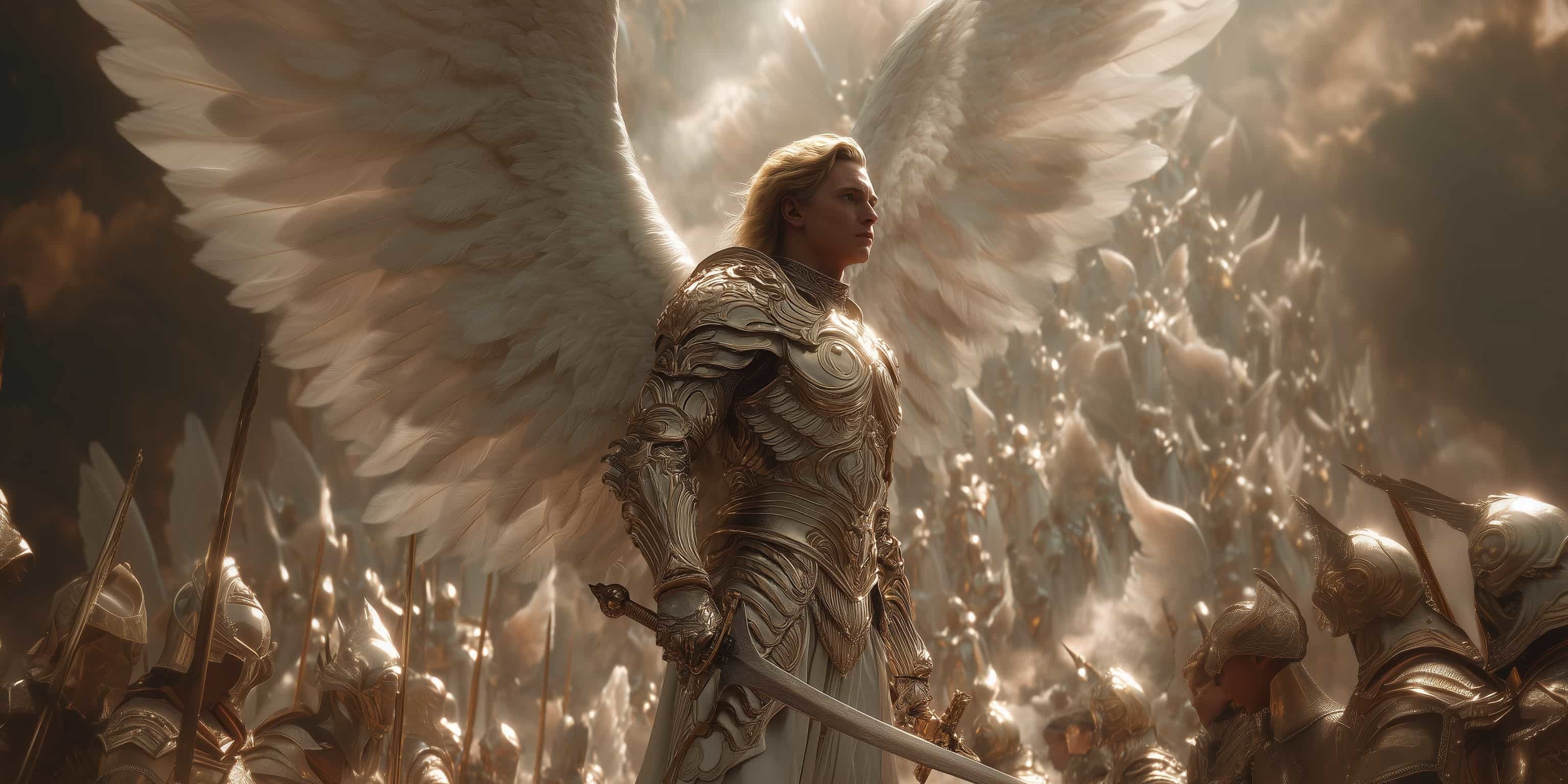The temple was dim, lit softly by flickering lamps.
Wisps of incense drifted upward, dancing gently toward heaven, carrying the whispered prayers of God's people.
Zechariah stood quietly before the golden altar, eyes closed, muttering heartfelt prayers he had spoken countless times before.
Then, suddenly, the air shifted. Zechariah wasn’t alone…
Zechariah turned. Perched beside the altar, standing impossibly tall, was Gabriel…
He was radiant, beautiful, and terrifying all at once. His voice, gentle yet commanding, reverberated through Zechariah’s soul:
“Do not be afraid, Zechariah; your prayer has been heard. Your wife Elizabeth will bear you a son, and you are to call him John.” (Luke 1:13)
Zechariah staggered backward. He didn’t believe it. He stammered, shook his head, and doubted it was possible.
Gabriel’s eyes shone with white-hot intensity and fury. He moved closer, leaning forward, his words filled with quiet authority:
“I am Gabriel. I stand in the presence of God, and I have been sent to speak to you and to bring you this good news.” (Luke 1:19)

The name Gabriel means “God is great.”
Gabriel stands uniquely in the presence of God Himself (Luke 1:19), entrusted with messages that shape history.
Unlike Michael, the warrior archangel who battles Satan, Gabriel’s role is more intimate.
Gabriel is a messenger. He’s the bridge between heaven’s will and humans’ understanding.
We first see Gabriel in Daniel's visions, appearing suddenly “in swift flight at the time of the evening sacrifice” (Daniel 9:21).
Gabriel explained prophecies and God’s sovereign plan to Daniel.
Gabriel, again and again, emerges to deliver announcements that alter destinies.
To Zechariah, he announced the birth of John the Baptist, the great prophet preparing the way of the Messiah.
To Mary, a humble girl in Nazareth, Gabriel spoke words that shattered human logic and understanding:
“You will conceive and give birth to a son, and you are to call Him Jesus. He will be great, and will be called the Son of the Most High…” (Luke 1:31–32)

In each encounter, Gabriel’s first words are the same: “Do not be afraid.”
Fear is the universal human reaction to the holiness and majesty Gabriel embodies. Yet this powerful archangel consistently offers reassurance, comfort, and peace.
Though Gabriel is primarily known as a messenger, Scripture hints at battles unseen by human eyes.
In Daniel chapter 10, Gabriel reveals that he was dispatched from heaven at the very instant Daniel began praying. But he encountered spiritual opposition through a demonic being called “the prince of Persia,” who delayed him for twenty-one days, until Michael the archangel intervened.
Here, we catch a glimpse of the invisible war raging beyond human vision. Battles between angelic and demonic forces shape events on earth.
Gabriel, the mighty messenger, is not exempt from spiritual resistance. Yet he faithfully perseveres, fulfilling God’s mission.
CONSIDER THIS:
Has your prayer life been marked by more speaking than listening? Perhaps it's time to quiet your mind and try to hear from God.

Gabriel’s visits teach us something crucial about our walk with God: heaven still speaks.
Our God communicates, guides, and reassures. But are we listening?
Like Zechariah, perhaps our prayers have grown weary. Or perhaps, like Daniel, we feel overwhelmed, confused, even shaken by what God seems to be doing around us.
In these moments, let Gabriel’s words resonate:
“Do not be afraid...Your prayer has been heard.”
Today, listen closely.
God still speaks through His Word, through His Spirit, through circumstances, and through our communities.
He longs for us to hear His voice clearly, calling us beyond fear into deeper faith.
Lean into the mystery. Listen for His voice. Trust in His promises. For the same God who sent Gabriel still speaks today to you.





